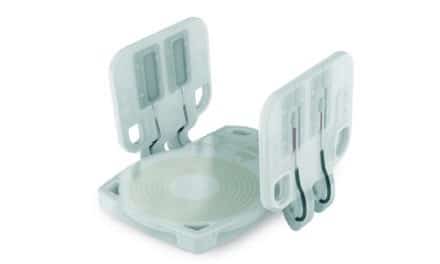When I’m watching the NBA Finals, the last thing that I’m thinking about is sleep disorders, but during last year’s NBA showdown, there was no way of dodging the topic. When an ad appeared for a snoring treatment product, sleep disorders were on my television screen and, once again, on my mind.
The ad was for PureSleep, an intraoral device for treatment of snoring. Like Shaq and Kobe, the device has received attention from the press and has sparked drama. Intraoral devices like PureSleep have been around for years, but getting a prescription for PureSleep—available without seeing a physician or dentist—is something new, and the product’s easy accessibility has sleep health advocates concerned. Can consumers mistake devices like PureSleep for an easy apnea fix? Are they safe for treatment of snoring? Protecting your patients’ sleep health hinges on being able to answer these questions.
PureSleep is pitched as “an FDA-cleared prescription dental device designed to reduce or eliminate snoring.” It makes no claims to treat OSA. The device can be prescribed through the PureSleep Web site, but before the PureSleep prescribing doctor can allow the device to be dispensed, the potential client has to first meet the prescription requirements determined through a 19-question online screening. What has people worried is that the device will be used improperly. People who snore, but are unaware that they have OSA, may obtain a prescription for PureSleep to treat their snoring while their OSA goes undiagnosed. The untreated OSA then puts the person at increased risk for development of hypertension, heart disease, diabetes, and other disorders.
| How should the prescription of intraoral devices be regulated? Join the discussion at Sleep Review’s Facebook page. |
Noel Lindsey, chairman and CEO of Sleep Science Partners, the parent company of PureSleep, discredits that argument. “That argument would prevent you from selling aspirin to someone who has a headache because they might have a brain tumor,” he said in an article published by the Pittsburgh Post-Gazette.
There is logic to Lindsey’s argument, but overlooking the benefit of the live, individual dentist or physician exam is dangerous. With FDA clearance, it seems that the availability and prescription method of PureSleep will continue as currently arranged, but this hasn’t stopped concerned OSA awareness advocates from proposing alternatives. “The FDA should examine whether strict disclaimers should be part of the advertising when the sleep physician is not involved in patient treatment,” said Ira L. Shapira, DDS, FICCMO, president of I HATE CPAP LLC. “The warning could state that snoring is often a sign of sleep apnea, which is a severe life-threatening disorder. Similar warnings of commonly associated diseases and conditions could be listed as well as dangers of not being properly treated.”
The FDA has cleared PureSleep for treatment of snoring, and with its high-profile ad campaign, awareness of this product is spreading, but backlash is also brewing. Worried about devices like PureSleep? Voice your concern to the FDA at fda.gov/medwatch. Your input matters.
—Franklin A. Holman
[email protected]




